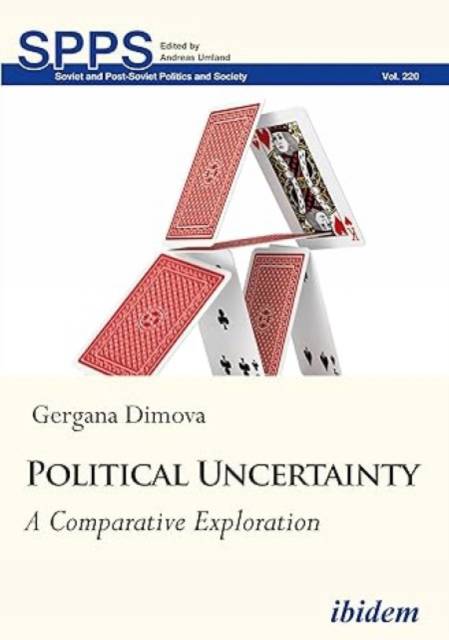
Je cadeautjes zeker op tijd in huis hebben voor de feestdagen? Kom langs in onze winkels en vind het perfecte geschenk!
- Afhalen na 1 uur in een winkel met voorraad
- Gratis thuislevering in België vanaf € 30
- Ruim aanbod met 7 miljoen producten
Je cadeautjes zeker op tijd in huis hebben voor de feestdagen? Kom langs in onze winkels en vind het perfecte geschenk!
- Afhalen na 1 uur in een winkel met voorraad
- Gratis thuislevering in België vanaf € 30
- Ruim aanbod met 7 miljoen producten
Zoeken
Omschrijving
This timely book provides a comprehensive analysis of political uncertainty and one of the first efforts to empirically measure it. Gergana Dimova compares political ambiguity within both established as well as unconsolidated democracies and explores institutional, behavioral, and media factors influencing such uncertainty. Combining aggregate statistical analysis and qualitative case studies, she seeks to provide answers to some hotly discussed questions of comparative politics, such as: To what extent is uncertainty invariable and unavoidable in political life? Why does uncertainty arise and how is it affecting liberal democracies?
In conclusion, Dimova argues that even in so-called "managed democracies," such as Russia, uncertainty is rife. Yet it is of a very different type there than ambiguity in more established democracies, such as Germany. Overall, this book furnishes important insights about the value of uncertain actions in political life and useful tips about how and when to combat it.
In conclusion, Dimova argues that even in so-called "managed democracies," such as Russia, uncertainty is rife. Yet it is of a very different type there than ambiguity in more established democracies, such as Germany. Overall, this book furnishes important insights about the value of uncertain actions in political life and useful tips about how and when to combat it.
Specificaties
Betrokkenen
- Auteur(s):
- Uitgeverij:
Inhoud
- Aantal bladzijden:
- 220
- Taal:
- Engels
- Reeks:
Eigenschappen
- Productcode (EAN):
- 9783838213859
- Verschijningsdatum:
- 2/01/2024
- Uitvoering:
- Paperback
- Formaat:
- Trade paperback (VS)
- Afmetingen:
- 145 mm x 208 mm
- Gewicht:
- 294 g

Alleen bij Standaard Boekhandel
+ 83 punten op je klantenkaart van Standaard Boekhandel
Beoordelingen
We publiceren alleen reviews die voldoen aan de voorwaarden voor reviews. Bekijk onze voorwaarden voor reviews.









